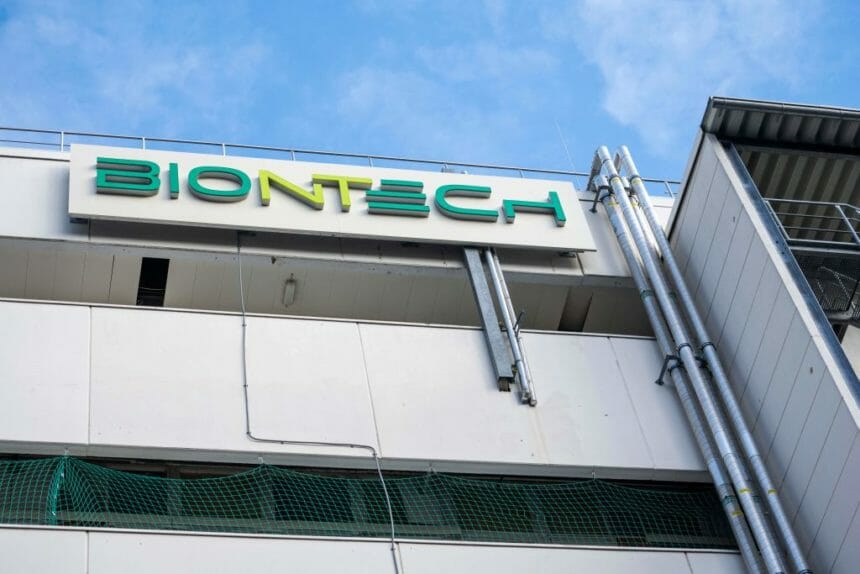BioNTech struck a partnership with DualityBio Monday morning to delve into next-generation antibody-drug conjugate (ADC) therapeutics in cancer and autoimmune diseases.
The deal gives BioNTech access to two ADC candidates, which the companies will develop and commercialize globally — including DualityBio’s lead candidate, DB-1303. BioNTech will pay $170 million upfront and milestone payments could add up to $1.5 billion.
The move marks a major foray into ADC therapeutics by BioNTech as it seeks to expand beyond its COVID-19 vaccines and brings an additional class of drug to the company’s oncology portfolio.
In March, BioNTech reported a profit drop in Q4 2022 due to the decreased demand for its COVID-19 vaccines and projected a decline in vaccine sales this year. Going forward, the company said it would be focusing more of its efforts on its oncology pipeline.
BioNTech’s deal with DualityBio also brings it DB-1311, another ADC candidate that is less advanced than DB-1303.
“Over the last years, the ADC field has made significant progress, overcoming several limitations and demonstrating its potential as a broadly applicable precision medicine drug class that might be an alternative to standard chemotherapy,” BioNTech CEO Ugur Sahin said in a statement.
DB-1303 is a third generation ADC molecule that targets HER2 positive and HER2 low tumor cancers, and aims to “address unmet medical needs in various HER2 expressing cancers,” the company noted.
In January, the Food and Drug Administration granted the drug fast track designation for the treatment of advanced, recurrent or metastatic endometrial cancer with HER2 overexpression.
“The addition of these two ADCs to our portfolio strengthens our pipeline of immunotherapies and expands our capabilities with the aim to provide therapeutic benefits for patients with a range of solid tumors, along the entire patient journey,” Sahin added.
The deal is BioNTech’s latest investment into oncology. In January, the company acquired InstaDeep for $440 million in initial cash in its biggest deal to date.
ADCs have been a growing interest in oncology as more research points to their potential in providing new therapy alternatives for diseases that have little treatment options.
In a paper published in Cancer Cell International last year, researchers noted “ADCs could be a potential therapy option where specific targeting by antibodies is possible and cell death of the target is the therapeutic goal.”
“ADCs are unique, potent, and unpredictable, and clinical and translational researchers are only beginning to grasp them,” the authors continued.








